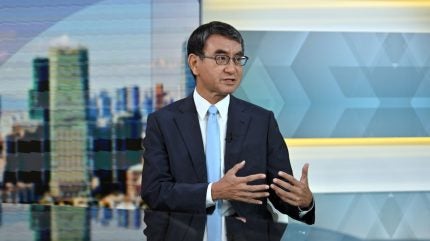
Japan’s Digital Transformation Minister Taro Kono, who is also vying for party leadership, said he opposed a possible block from the US government to Nippon Steel’s takeover of US Steel.
“I think they’re looking for labor union votes ahead of the US presidential race,” Kono said as he laid out his policy platform for the election later this month that will determine Japan’s next leader.
“Raising productivity, efficiency, through corporate buyouts should have merits for both the buyer and the seller. […] In principle, intentional intervention from governments shouldn’t happen.”
Government officials in Japan have said that the deal is a matter that the companies, not governments, should decide amongst themselves.
The comments come as recent reports suggest that Biden is getting ready to block the deal, possibly as early as this week.
Opposition in the US
At a Labour Day event on Monday, Democratic presidential nominee Vice President Kamala Harris confirmed she was also against the deal. She maintained it was “vital to [the US] to maintain strong American steel companies.”
President Biden has repeatedly stated his opposition and Republican presidential candidate former President Donald Trump said he would block the deal immediately if he won in November.
A major factor affecting the deal is the relationship between the upcoming election and the American labor unions. United Steelworkers is based in Pennsylvania, a crucial swing state for both candidates, and it automatically opposed the deal once it was announced.
The union said that US Steel did not consult with union leaders during negotiations.
The proposed $15bn takeover from Nippon Steel has been under review by the Committee on Foreign Investments (CFIUS) in the US. The committee has been used in the past to review deals that could pose a national security threat. The last time it was used to block a deal was in May, when Biden ordered a Chinese crypto company to sell and leave land near a US air force base.
On the investigation, US Steel said they “continue to stand by the fact that there are no national security issues associated with this transaction, as Japan is one of our most staunch allies. We fully expect to pursue all possible options under the law to ensure this transaction” goes through.
The China issue
Proponents of the takeover have said that merging the steel companies would allow the allies to better compete with China. The issue of aligning policy to battle China’s global influence and maintaining domestic sovereignty seems to be a growing tension between the US and Japan.
China recently threatened to retaliate after Japan imposed export regulations on the semiconductor sector. Japan’s export restrictions had been perceived as a win for the US, which has been trying to influence allied nations to enact policies that limit China’s growth.
The involvement of US officials in Japan has caused some discomfort, as some feel that a foreign power should not be dictating policy. The US’s threat to enact a draconian export policy has also been perceived as unnecessarily aggressive, particularly coming from one of Japan’s closest allies.



